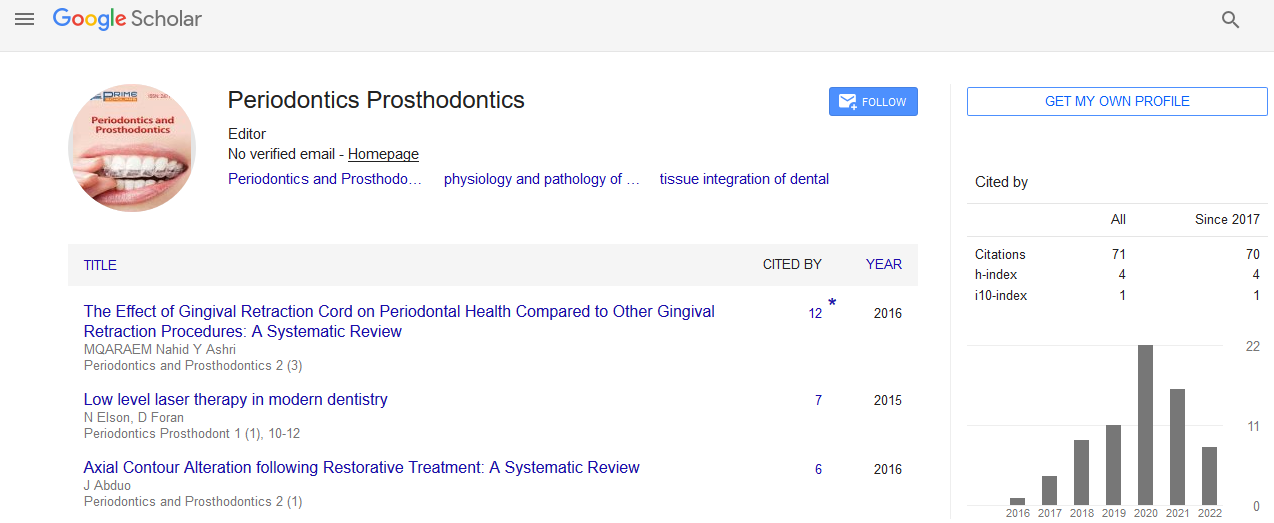Commentary Article - (2023) Volume 9, Issue 3
Intravenous sedation on recall of oral surgery
Obada Barry*
Department of Oral Histopathology, University of Umea, Sweden
*Correspondence:
Obada Barry,
Department of Oral Histopathology, University of Umea,
Sweden,
Email:
Received: 30-Aug-2023, Manuscript No. IPPDPD-23-18133;
Editor assigned: 01-Sep-2023, Pre QC No. IPPDPD-23-18133;
Reviewed: 15-Sep-2023, QC No. IPPDPD-23-18133;
Revised: 20-Sep-2023, Manuscript No. IPPDPD-23-18133;
Published:
27-Sep-2023, DOI: 10.36648/2471-3082.23.9.25
Description
Epidemiology is a critical field of study that plays a pivotal role in understanding the distribution and determinants of health and disease in populations. It is a multidisciplinary science that combines elements of medicine, statistics, biology, and social sciences to investigate and analyze the factors influencing public health. Epidemiologists are the detectives of the public health world, seeking to unravel the mysteries of how diseases spread, who is affected, and why they are affected. This essay will delve into the fundamentals of epidemiology, its methods, and its vital contributions to improving global health. Epidemiology, derived from the Greek words “epi” (upon), “demos” (people), and “logos” (study), can be broadly defined as the study of the distribution and determinants of health-related states or events in specified populations and the application of this study to control health problems. In simpler terms, it is about understanding why and how diseases and health conditions affect different populations and using this knowledge to prevent, manage, and control these issues effectively. Population health epidemiology primarily focuses on populations rather than individuals. It aims to identify trends and patterns across groups of people, such as age, gender, ethnicity, geographic location, and socioeconomic status. Epidemiologists assess how health events are distributed within a population, which can involve examining variations across time, place, and person. This analysis helps pinpoint high-risk groups and potential causes. Understanding the factors influencing health and disease is at the core of epidemiology. These determinants can be biological, social, behavioral, or environmental. For example, genetics, lifestyle choices, and exposure to pollutants can all play a role in disease occurrence. Epidemiology investigates disease patterns, including the incidence (new cases), prevalence (total cases), and trends over time. These patterns can help predict disease trajectories and assess the impact of interventions. Epidemiologists employ a range of methods to gather
and analyze data, including this involves characterizing the distribution of health events, such as when and where cases occur. For instance, in the case of a disease outbreak, epidemiologists will collect data to describe the affected population and identify common characteristics. This method explores the determinants of health events. It includes case-control studies, cohort studies, and randomized control trials, which help identify risk factors, causes, and preventive measures. Epidemiologists sometimes conduct controlled experiments to assess the effectiveness of interventions. This method is especially useful for assessing the impact of medical treatments or preventive measures. Ongoing data collection and monitoring of health events are crucial for tracking diseases and emerging health threats. Surveillance systems help detect outbreaks, assess the effectiveness of control measures, and inform public health policies.
Conclusion
Epidemiology is a powerful scientific discipline with a critical role in promoting public health. It uncovers the complex interplay of factors that affect the health of populations and guides interventions to reduce disease burdens. Through its methods and principles, epidemiology continues to make a significant impact on understanding, preventing, and managing health and disease, ultimately contributing to the well-being of societies around the world. As the world grapples with emerging health challenges, epidemiology remains a key tool for ensuring a healthier and safer future.
Acknowledgement
None.
Conflict Of Interest
The authors declare that they have no conflict of interest.
Citation: Barry O (2023) Intravenous Sedation on Recall of Oral Surgery. Periodon Prosthodon. 9:25.
Copyright: © 2023 Barry O. This is an open-access article distributed under the terms of the Creative Commons Attribution Li�cense, which permits unrestricted use, distribution, and reproduction in any medium, provided the original author and source
are credited.

